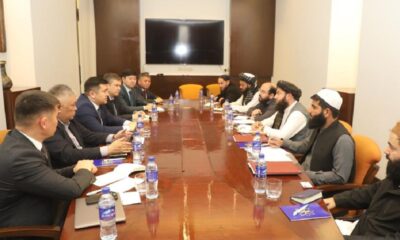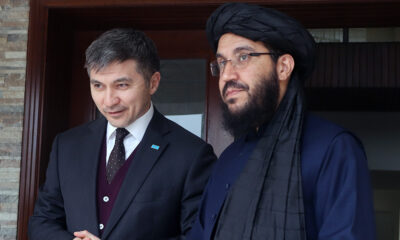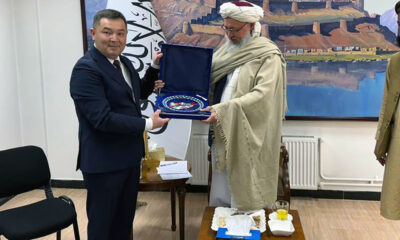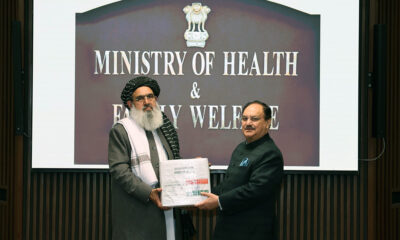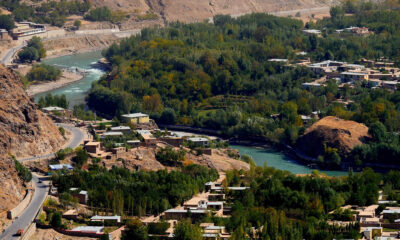Latest News
Wave of threats and killings has sent ‘chilling message’ to Afghan media

Taliban forces are deliberately targeting journalists and other media workers, including women, in Afghanistan, Human Rights Watch said this week.
“A wave of threats and killings has sent a chilling message to the Afghan media at a precarious moment as Afghans on all sides get set to negotiate free speech protections in a future Afghanistan,” said Patricia Gossman, associate Asia director.
“By silencing critics through threats and violence, the Taliban have undermined hopes for preserving an open society in Afghanistan,” she said.
In a statement issued by the rights watchdog, HRW said threats and attacks against journalists across the country have increased sharply since talks began between the Afghan government and the Taliban, heightening concerns about preserving freedom of expression and the media in any peace settlement.
Human Rights Watch has found that Taliban commanders and fighters have engaged in a pattern of threats, intimidation, and violence against members of the media in areas where the Taliban have significant influence, as well as in Kabul.
Those making the threats often have an intimate knowledge of a journalist’s work, family, and movements and use this information to either compel them to self-censor, leave their work altogether, or face violent consequences, the statement read.
HRW said provincial and district-level Taliban commanders and fighters also make oral and written threats against journalists beyond the areas they control. Journalists say that the widespread nature of the threats has meant that no media workers feel safe.
Human Rights Watch interviewed 46 members of the Afghan media between November 2020 and March 2021, seeking information on the conditions under which they work, including threats of physical harm.
Those interviewed included 42 journalists in Badghis, Ghazni, Ghor, Helmand, Kabul, Kandahar, Khost, Wardak, and Zabul provinces and four who had left Afghanistan due to threats.
In a number of cases that Human Rights Watch documented, Taliban forces detained journalists for a few hours or overnight.
In several cases they or their colleagues were able to contact senior Taliban officials to intercede with provincial and district-level commanders to secure their release, indicating that local commanders are able to take decisions to target journalists on their own without approval from senior Taliban military or political officials, HRW stated.
Taliban officials at their political office in Doha, Qatar, have denied that their forces threaten the media and say that they require only that journalists respect Islamic values.
But Taliban commanders throughout Afghanistan have threatened journalists specifically for their reporting. The commanders have considerable autonomy to carry out punishments, including targeted killings, read the statement.
Women journalists, especially those appearing on television and radio, face particular threats.
The recent wave of violent attacks has driven several prominent women journalists to give up their profession or leave Afghanistan altogether.
Human Rights Watch found that female reporters may be targeted not only for issues they cover but also for challenging perceived social norms prohibiting women from being in a public role and working outside the home.
Journalists outside the country’s main cities are especially vulnerable to attacks because they are more exposed and lack even the minimal protection that a larger Afghan media, government, and international presence provides.
However, as the fighting has increasingly encroached on major cities, these have offered decreasing protection to journalists seeking safety from the violence in their home districts, the statement read.
A journalist covering the fighting in Helmand province told Human Rights Watch that one of his sources told him the Taliban were looking for him and he should lie low.
“The majority of Afghan journalists feel intimidated and threatened,” he said. “All the journalists are scared because everyone feels like they could be next.”
Human Rights Watch called on the Taliban leadership to immediately cease intimidation, threats, and attacks against journalists and other media workers.
They should urgently provide clear, public directives to all Taliban members to end all forms of violence against journalists and other media workers, and intimidation, harassment, and punishment of Afghans who have criticized Taliban policies, the statement read.
The Taliban leadership should also explicitly reject violence against women in the media, the rights watchdog stated.
In addition, HRW called on the United Nations and governments supporting the Intra-Afghan Negotiations to publicly press the Taliban leadership to adopt these recommendations, and provide increased support, including protection, to independent media organizations and journalists in Afghanistan, especially those facing threats.
“It’s not enough for Taliban officials in Doha to issue blanket denials that they’re targeting journalists when Taliban forces on the ground continue to intimidate, harass, and attack reporters for doing their jobs,” Gossman said.
“Countries supporting the peace process should press for firm commitments from all parties to protect journalists, including women, and uphold the right to free expression in Afghanistan.”
Latest News
Afghanistan and Kyrgyzstan boost trade and digital finance ties
Minister Sydykov, in turn, pledged the continuation of Kyrgyzstan’s humanitarian assistance to Afghanistan and highlighted his country’s interest in working together on e-governance initiatives.
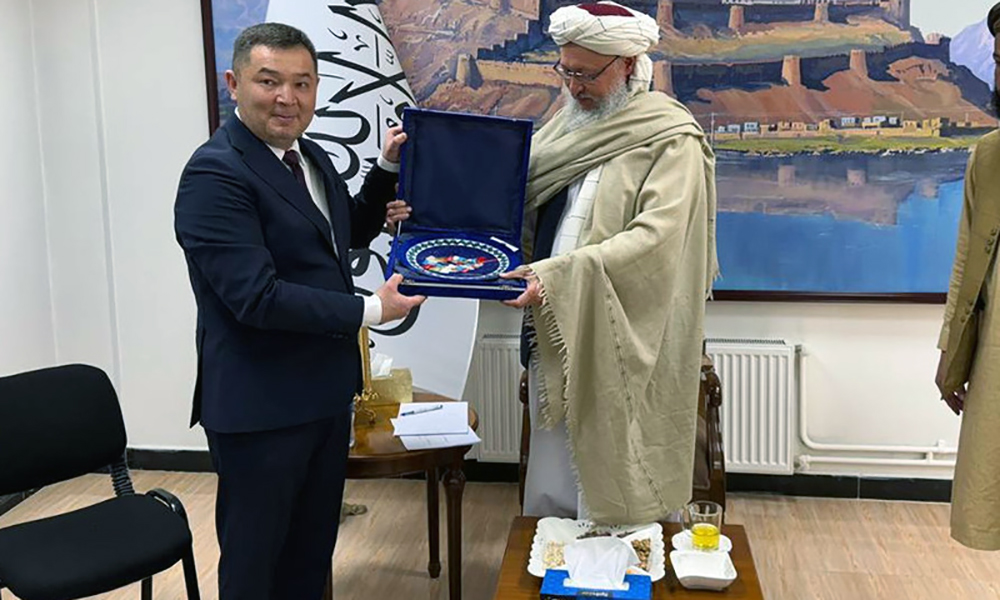
Afghanistan’s Deputy Prime Minister for Administrative Affairs, Abdul Salam Hanafi, has met with a high-level Kyrgyz delegation led by Minister of Economy and Commerce Bakhyt Sydykov to discuss expanding bilateral trade and strengthening cooperation in digital financial services.
During the meeting, Hanafi reaffirmed Afghanistan’s readiness to deepen ties with Kyrgyzstan, stressing the importance of developing electronic administration systems and modern banking channels to facilitate trade and financial transactions between the two countries.
Minister Sydykov, in turn, pledged the continuation of Kyrgyzstan’s humanitarian assistance to Afghanistan and highlighted his country’s interest in working together on e-governance initiatives. He also pointed to potential cooperation in areas such as the printing of securities and the development of electronic payment systems.
Latest News
India reaffirms healthcare support to Afghanistan, hands over medicines and vaccines
Indian officials said the support underscores New Delhi’s commitment to helping improve healthcare services and access to life-saving treatment in Afghanistan.

India has reaffirmed its commitment to continued humanitarian assistance and healthcare cooperation with Afghanistan, with a focus on the long-term supply of essential medicines.
According to the Ministry of Health and Family Welfare of the Government of India, Union Health Minister J.P. Nadda held a productive meeting with Afghanistan’s Minister of Public Health, Noor Jalal Jalali. The discussions focused on strengthening cooperation in the health sector and addressing the medical needs of the Afghan people.
During the meeting, a symbolic handover of cancer medicines and vaccines was carried out, reflecting India’s ongoing support for Afghanistan’s healthcare system. The ministry also announced that a larger consignment of medicines, vaccines, and a 128-slice CT scanner is being dispatched to Afghanistan as part of India’s humanitarian assistance efforts.
Indian officials said the support underscores New Delhi’s commitment to helping improve healthcare services and access to life-saving treatment in Afghanistan.
Latest News
Afghan forces target hideout of suspects linked to cross-border attacks on Chinese nationals
Afghan forces target hideout of suspects linked to cross-border attacks on Chinese nationals
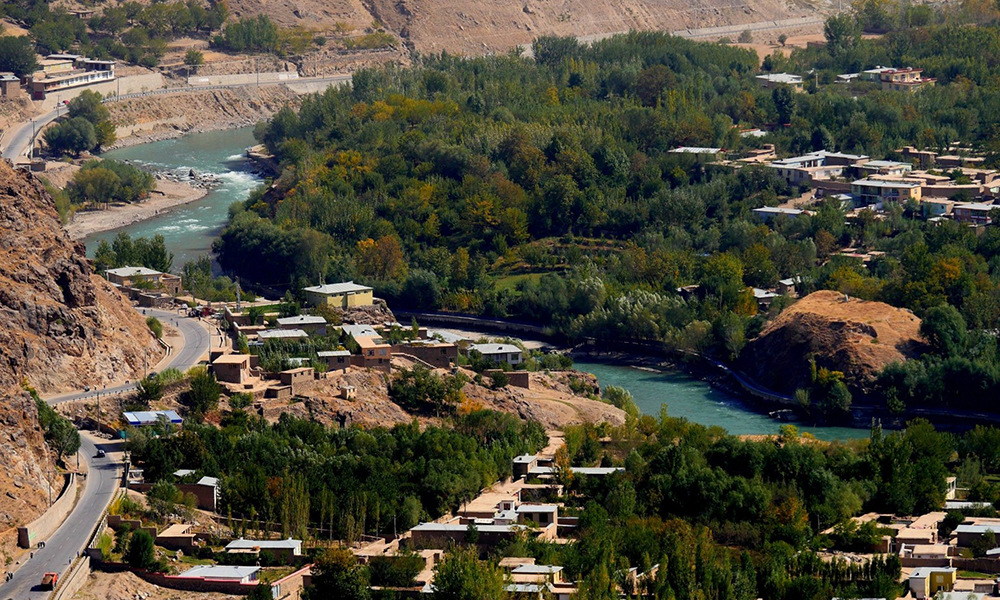
Security sources said that special forces of the Islamic Emirate of Afghanistan (IEA) have targeted a hideout in Badakhshan province linked to suspects involved in attacks against Chinese nationals in neighboring Tajikistan.
According to the sources, the operation was carried out on Tuesday night in Faizabad city, where several individuals suspected of orchestrating cross-border attacks from Badakhshan’s frontier regions were believed to be present. As a result of the operation, one wanted suspect was arrested alive along with weapons and other military equipment.
The sources added that preliminary investigations and initial confessions by the detainee indicate the planning of the attacks was carried out from outside Afghanistan.
This comes as Tajikistan’s Ministry of Foreign Affairs announced on November 27 that three Chinese citizens were killed in an attack in Khatlon province.
-

 Latest News4 days ago
Latest News4 days agoUS delivers second batch of Afghan Black Hawk helicopters to Peru
-

 Latest News3 days ago
Latest News3 days agoGermany speeds up admission of Afghans from Pakistan
-

 Sport3 days ago
Sport3 days agoIPL 2026 Auction set for Abu Dhabi with $28.6 million purse at stake
-
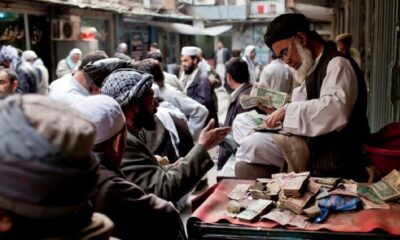
 Business4 days ago
Business4 days agoAfghan economy posts second year of growth despite deep structural challenges
-

 Latest News3 days ago
Latest News3 days agoAfghanistan to establish independent oil and gas authority
-

 Sport4 days ago
Sport4 days agoATN to broadcast ‘The Best FIFA Football Awards 2025’
-

 Latest News3 days ago
Latest News3 days agoUS intelligence chief warns of ‘direct threat’ from suspected terrorists inside the country
-

 International Sports4 days ago
International Sports4 days agoILT20: Jahangir powers Dubai Capitals to nine-run win over Abu Dhabi Knight Riders


